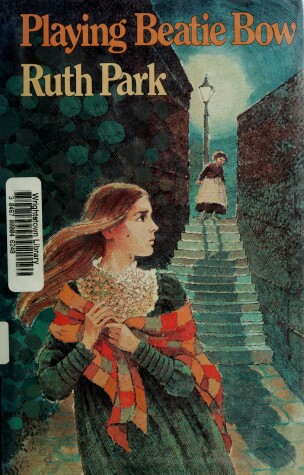
Ace
Written on Jan 8, 2016
I have literally lost count of how many times that I’ve read this book. I first read it – well listened – to it when I was probably not quite ten? It was on cassette. I only got rid of the tapes recently cause you know not having a tape player made it hard. As soon as I did so I bought a copy of the book. I don’t know exactly where it is so I admit I borrowed it from the library but still.
This book is amazing.
Combining various themes that I love, in time travel, history and Australian history it also combines with a coming of age story, something that I don’t usually go for. Playing Beatie Bow does it in a way that I can’t help but love. I’m not exactly sure why but it is a book that I will keep coming back to time and time again.
Abigail, is written in a way that shows what a teenager truly is. Surly, self-centred never thinking of others. Perhaps because she is ‘real’ is why I like her but also the character development and growth that she goes through over the course of the book making her into a (mostly) decent human being. Abby’s life hasn’t been easy, far from it but she always made it seem worse than it is.
‘I’m not kind,’ said Abigail with a sickish surprise. ‘Look how I went on with Mum when she said she wanted us to get together with Dad again. Look what I did to Dad when I was little, punched him on the nose and made it bleed. Maybe I’ve never been really kind in my life.
And she remembered with a pang what Kathy had said, that awful day: that she had never, either as a child or a fourteen-year-old, offered a word of sympathy to her her mother.
‘Yet here are these people, happy and grateful to be able to read and write, just to be allowed to earn a living; and they’ve shared everything they can share with me, whom they don’t know from Adam.’
These Victorians lived in a dangerous world, where a whole family could be wiped out with typhoid fever or smallpox, where a soldier could get a hole in his head that you could put your fist in, where there were no pensions or free hospitals or penicillin or proper education for girls, or even boys, probably. Yet, in a way, it was a more human world than the one Abigail called her own. [pp.76-77]
Being sent back in time, allowed her to see that her life wasn’t that bad, to come to terms with what she had and more importantly that she missed what she had had back in 1980s, Sydney.
The Bow family and the detail that Ruth Park goes into for that time period is amazing. I love my history, especially Australian history and to see the darker side of life portrayed in a way that is not only believable but also accurate is refreshing. Many books, tend to skirt over the darker issues, especially ones aimed for this age group but Playing Beatie Bow has no problem in bringing up the darker themes. These range from poverty, to death, illness, war and hallucinations brought on by war injuries but also kidnapping and slavery that ran rampant in the heart of Sydney. Even a brief appearance by one of the last convict street gangs, nearly a hundred years after white-man first settled Sydney.
I think that all of this, the multi-dimensional characters both in Abby’s real time and in the 1870s once she travelled back, the level of detail that Ruth Park has gone into and just how ‘realistic’ it is despite the time travel and ‘the gift’ of the Tallister-Bow family that allows people to see glimpses of the future, make it such an amazing, timeless story.
Overall, it is a book that I will always love and recommend to people without a second thought.
